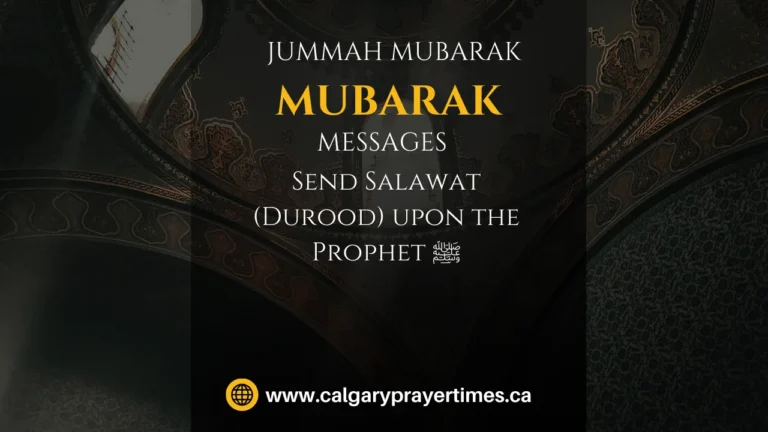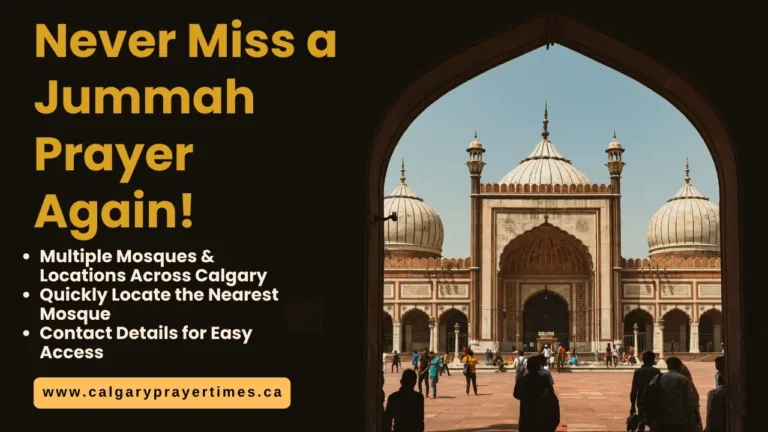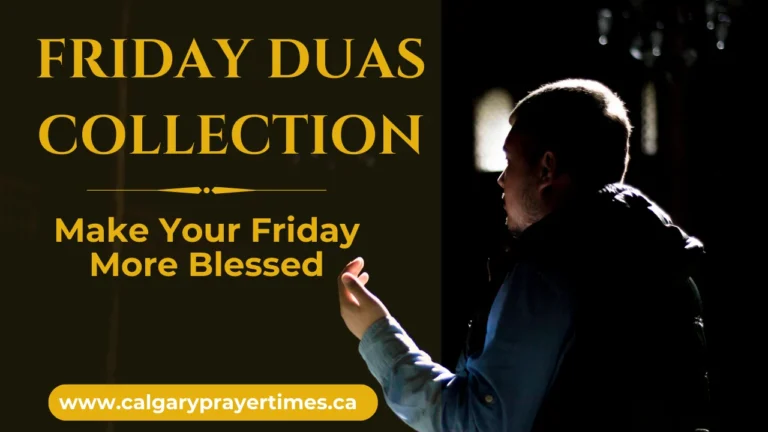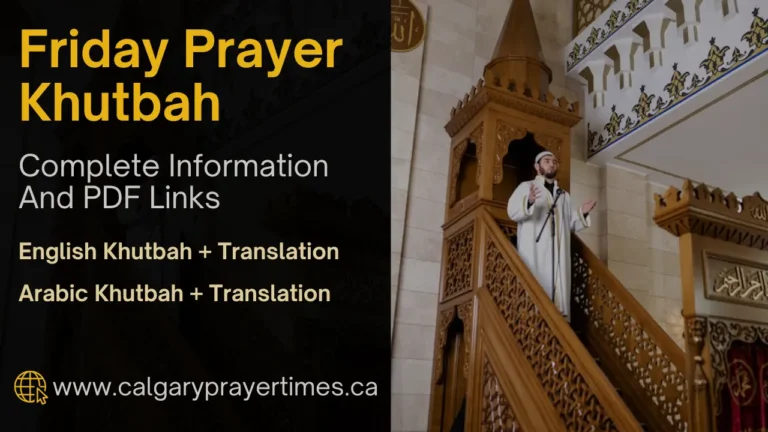Friday Prayer Rakats: A Complete Guide to Jummah Rakats
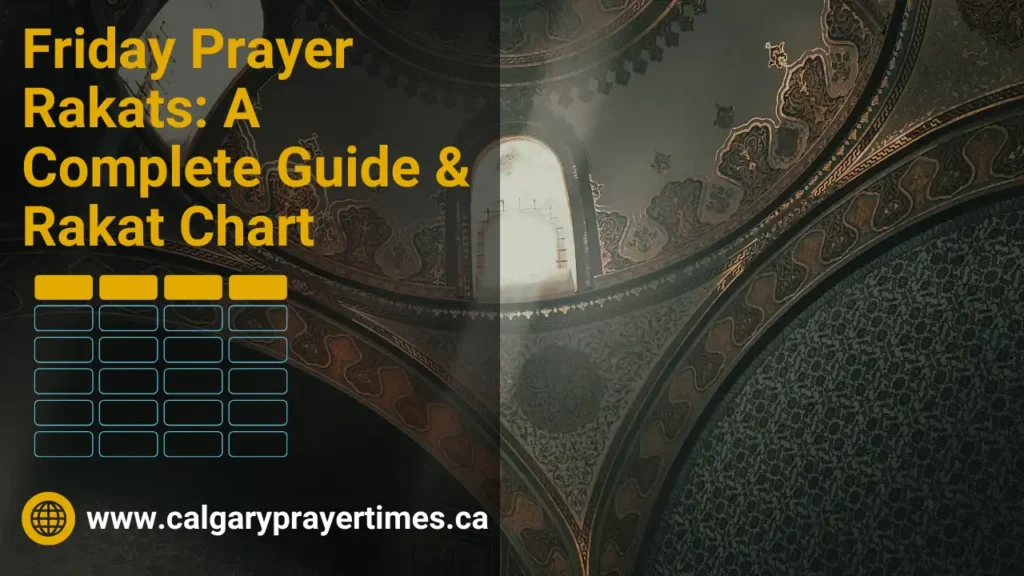
Jummah, or Friday prayer, is one of the most significant prayers in Islam. Unlike the regular Dhuhr prayer, Jummah is a communal prayer performed in congregation at the mosque. It includes a special khutbah (sermon) and is considered an obligation for adult Muslim men who are not traveling or facing valid excuses.
Many Muslims often wonder about the total number of rakats in Jummah prayer and the Sunnah prayers before and after it. In this article, we will break down the exact structure of Jummah prayer rakats, the importance of attending the khutbah, and the rewards associated with this blessed day.
Key Takeaways
- Jummah prayer consists of 14 rakats in total according to the Hanafi school of thought.
- The Friday prayer replaces Dhuhr prayer but has a unique structure with a khutbah.
- It is mandatory for Muslim men to perform the 2 Fard rakats of Jummah in congregation.
- The Sunnah rakats before and after Jummah are highly recommended and hold great rewards.
- The khutbah is an essential part of the Jummah prayer and must be attended.
How Many Rakats in Jummah Prayer?
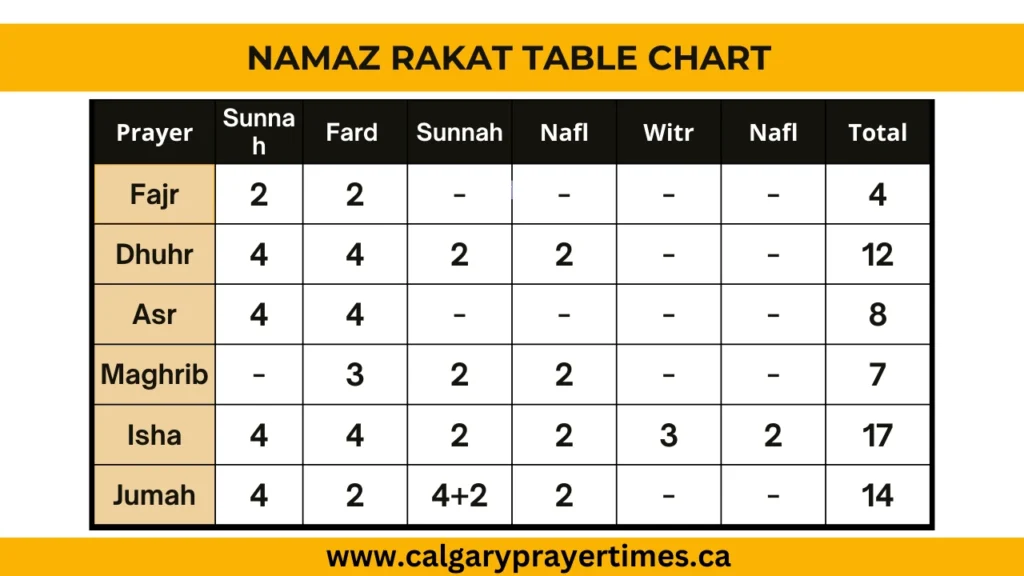
The total rakats of Jummah prayer are divided into different parts, including Sunnah, Fard, and Nafl prayers. Here’s a clear breakdown:
| Type of Prayer | Number of Rakats | Obligation |
|---|---|---|
| Sunnah Mu’akkadah (Before Khutbah & Fard) | 4 Rakats | Highly Recommended |
| Fard (Jummah Prayer in Congregation) | 2 Rakats | Obligatory |
| Sunnah Mu’akkadah (After Fard) | 4 Rakats | Highly Recommended |
| Sunnah Mu’akkadah (Additional) | 2 Rakats | Highly Recommended |
| Nafl (Optional Prayer for Extra Rewards) | 2 Rakats | Voluntary |
Total: 14 Rakats (including Sunnah and Nafl prayers)
Breakdown of Each Jummah Prayer Rakat
1. Sunnah Muakkadah Before Jummah – 4 Rakats
- These 4 rakats are performed before the khutbah.
- It is a highly recommended Sunnah, which Prophet Muhammad (PBUH) never missed.
- These rakats help prepare the mind and soul before standing for the main Jummah prayer.
Hadith Evidence:
“The Messenger of Allah (PBUH) used to pray four rak’ahs before Jummah and two rak’ahs after it.” (Sunan Abu Dawud 1128)
2. Fard of Jummah – 2 Rakats (Obligatory)
- These 2 rakats replace the Dhuhr prayer on Friday.
- The khutbah (sermon) is delivered before this prayer.
- It must be performed in congregation at the mosque.
Hadith Evidence:
“When Friday comes, angels stand at the door of the mosque and record the names of those who come early. When the Imam comes out, they roll up their scrolls and listen to the sermon.” (Sahih Al-Bukhari 929)
🚨 Important:
- Skipping the Jummah prayer without a valid excuse is a major sin.
- It is essential to listen to the khutbah because it is part of the Jummah prayer.
3. Sunnah Mu’akkadah After Jummah – 4 Rakats
- After the 2 Fard rakats, 4 more Sunnah rakats are prayed.
- The Prophet (PBUH) regularly performed these rakats, making them highly recommended.
- These rakats provide additional rewards and spiritual benefits.
Hadith Evidence:
“Whoever among you is to pray after the Friday prayer, then let him pray four rak’ahs.” (At-Tirmidhi 523)
4. Additional Sunnah Mu’akkadah – 2 Rakats
- Some scholars recommend praying an extra 2 rakats.
- This is not obligatory but is considered Sunnah Mu’akkadah.
5. Nafl Rakats – 2 Rakats (Optional)
- These 2 Nafl rakats are completely voluntary.
- They bring extra rewards and are a sign of devotion.
- The Prophet (PBUH) encouraged praying Nafl prayers at home.
Hadith Evidence:
“When you have prayed the Friday prayer, pray four (rak’ahs) afterward.” (Sunan Abu Dawud 1251)
The Significance of Jummah Prayer in Islam
Friday is regarded as the best day of the week in Islam. It is a day of spiritual renewal, community gathering, and increased supplication. The Qur’an emphasizes the importance of attending Jummah prayer:
“O you who believe! When the call is proclaimed to prayer on Friday (the day of Jummah), hasten earnestly to the remembrance of Allah and leave off business. That is better for you if you but knew.” (Qur’an, 62:9)
Prophet Muhammad (PBUH) also highlighted the blessed nature of Friday, saying:
“The best day on which the sun has risen is Friday. On it, Adam was created, on it he was admitted to Paradise, and on it he was expelled from it. And the Hour will not be established except on Friday.” (Sahih Muslim)
Jummah prayer is not just about praying it is a spiritual and communal experience that strengthens the bond among Muslims.
Conclusion
Jummah prayer is one of the most important congregational acts of worship in Islam. It replaces the Dhuhr prayer and consists of a special khutbah and a structured rakat sequence.
To summarize:
- 2 Fard rakats (Obligatory)
- 4 Sunnah Mu’akkadah before & 4 after Jummah
- 2 Additional Sunnah Mu’akkadah
- 2 Nafl rakats for extra rewards
By performing all the Sunnah rakats, a Muslim earns greater spiritual benefits and follows the Sunnah of the Prophet Muhammad (PBUH).
May Allah accept our prayers and grant us the blessings of Jummah. Ameen!
Frequently Asked Questions (FAQs)
Can Women Pray Jummah at Home?
Yes, women are not obligated to attend Jummah prayer at the mosque. They can pray Dhuhr at home instead.
What Happens If You Miss Jummah Prayer?
If someone misses Jummah without a valid reason, it is considered a major sin. The Prophet (PBUH) warned:
“Whoever neglects three consecutive Jummah prayers out of negligence, Allah will place a seal upon his heart.” (Sunan Abu Dawud 1053)
If missed, Dhuhr prayer should be performed instead.
Is It Necessary to Listen to the Khutbah?
Yes, the khutbah is an essential part of Jummah prayer. Talking during the khutbah is prohibited, and one should listen attentively.
Can I Pray Nafl Rakats After Jummah?
Yes, 2 Nafl rakats can be prayed after the 4 Sunnah Mu’akkadah for extra rewards.


